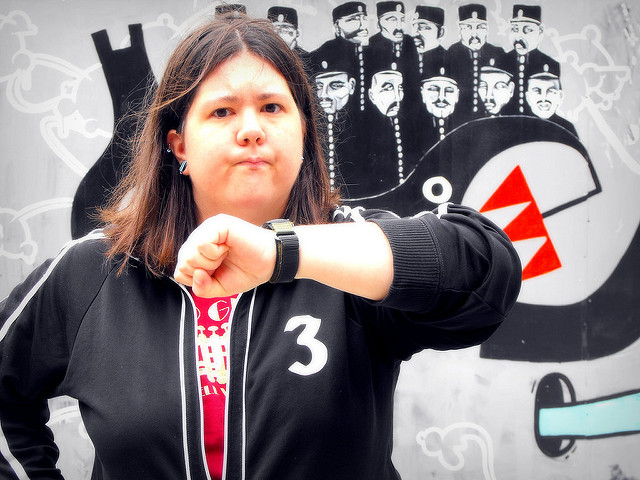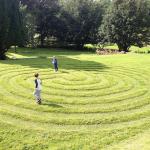
Hurrying Into Stillness
More and more of us are talking about the importance of mindfulness and stillness in our lives. We commit ourselves to beginning new contemplative practices. Our new practices take time and we often find ourselves hurrying into stillness.
We want to spend time listening to sacred stillness regularly and say we will spend at least twenty minutes each day. On a practical level we are trying to squeeze another twenty minutes into a day which is already full of things to do. We rush through our days, dealing with unexpected challenges and interruptions, hurrying into stillness.
Many of us are impatient when we are not able to transition immediately from everyday tasks into mindfulness. Why is stillness so elusive, so hard for us to experience? We end the time we have scheduled for contemplation and hurry off to the next thing we need to do.
Contemplative practices are not magic pills or ways we can inoculate our lives to free us from stress.
It feels as if we are working to meet our own minimum requirements for contemplation. Are we trying to complete our stillness task for the day? We are busy, hurrying into stillness, and have only so much time to spend listening to sacred stillness.
Contemplative practices are not about meeting our minimum daily standards. Listening to sacred stillness is not about meeting our goal, completing our task, or checking a box each day.
The idea of contemplative life is to spill over our carefully organized calendars into the rest of our lives.
It is impossible to rush through stillness. We take to time listen while sacred stillness fills the rest of our days.
A contemplative practice is more than one more thing we need to do each day.
Why Are We Hurrying Into Stillness?
Some of us believe we need to fill our lives with worthwhile pursuits to find the significance we seek.
We analyze how to invest our time, talents, and financial resources as if we were setting up a retirement plan. There seem to be so many valuable ways we can spend our time we get confused about how we will live our lives. We try to fill our days with activities which give them meaning and purpose.
It is important to decide how we will spend our lives. We do not want to waste our time and efforts haphazardly. Our time and energy are valuable and we hope to use them wisely.
At the same time, we cannot do everything. It is easy for us to get so overcommitted we end up hurrying into stillness.
The challenge for us is to find ways we can balance stillness and activity.
Most of us tend lean more toward action than contemplation. Even when we recognize our need or desire for sacred stillness, we try to find things to do to include it in our lives.
It can be a challenge for us to appreciate we may not need to do more. Doing less might be what will give us the greatest benefit.
For some of us, realizing we need or want to do less is a matter of facing expectations. They may be our own expectations of ourselves, or what other people expect of us.
Some of us will need to face expectations of people who are no longer with us.
Many of us have spiritual or emotional or psychological expectations we need to face directly. Each of us has our own reasons we are hurrying into stillness.
As we begin to understand our own reasons we can start to slow our hurrying into stillness.
How Can We Slow Our Hurrying Into Stillness?
It is almost as if each day were something we were trying to eat. Many of us are trying to consume our food as rapidly as possible. Each day is too large for us to swallow whole. We try to divide it into bite sized, easy to swallow portions.
Our lives are more than eating contests. We do not win by eating as fast as we can.
Rather than trying to eat as much and as fast as we can, we are eating to enjoy the experience. We can savor each flavor and recognize how they fit together. Slowing down allows us to reflect on what we are tasting and gain new insights.
We give ourselves opportunities to appreciate what we are eating in new ways.
Listening to sacred stillness is like enjoying a good meal. We want to take our time and allow ourselves to reflect on our experience of each bite rather than hurrying into stillness.
Contemplative practices help us not only gain nutrition from our days but also appreciate how they taste.
We take time to breathe in their aromas and roll their flavors on our tongues.
Each day can be a new epicurean experience which begins before we start preparing it and lasts long after we finish eating.
Breaking Our Habits of Hurrying Into Stillness
Some of us begin to practice listening to sacred stillness because we want to incorporate it into our lives. It can be helpful to us to have a particular time and place when we remember to pause and listen.
Contemplative practices, though, are often more significant for what we experience beyond our regular appointment.
As our practice helps us become more mindful we pay more attention to what is happening in our everyday lives. We may become better listeners, more willing to take time for other people. There may be connections we have missed before which we now begin to make. Some of us become more patient with the people around us.
We start to slow ourselves down in anticipation of the time we spend listening to sacred stillness. Our times of focused listening spill over into the rest of our schedules.
Each moment becomes capable of getting our attention and keeping us from hurrying into stillness.
Why do we find ourselves hurrying into stillness this week?
How can we slow our hurrying into stillness today?
[Image by meddygarnet]
Greg Richardson is a spiritual life mentor and leadership coach in Southern California. He is a recovering attorney and university professor, and a lay Oblate with New Camaldoli Hermitage near Big Sur, California. Greg’s website is StrategicMonk.com, and his email address is [email protected].












